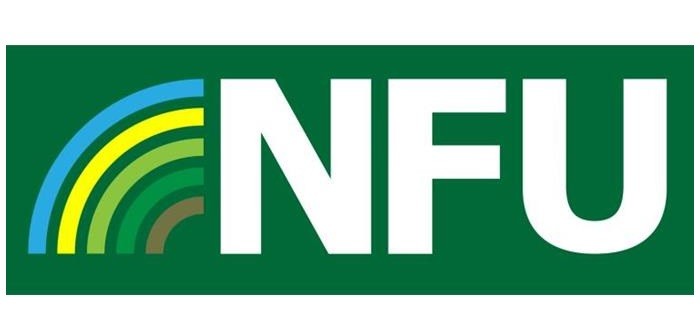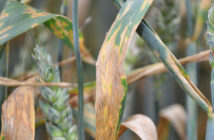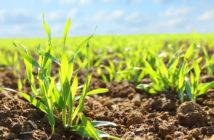The NFU is calling for a stronger focus on crop research to help increase crop quality and yields, after the annual NFU harvest survey revealed that yields were down across the sector compared to the previous year.
According to the survey, both yields of wheat and barley, 14.2m tonnes (down 14.9% year-on-year) and 6.6m tonnes respectively, are in line with the five-year average but the figures provide a stark comparison with global production rising in 2016. The oilseed rape crop area is now in its fifth year of decline and with poor yields, production has been reduced to 1.7m tonnes (down 32.5% year-on-year), well below the five-year average of 2.5m tonnes.
For arable farmers to contend and remain competitive in the face of volatile weather and low prices, the NFU is calling for crop research to have a stronger focus for British farmers to remain competitive in the global marketplace.
NFU combinable crops board chairman Mike Hambly said: “A harvest that has seen lower than average yields should leave all cereals producers concerned, as global competitors with access to new technology and innovation see yields rise. It is frustrating to know that with research applied in the right way and with access to technology and innovations that competitors use to increase their production and lower their environmental impact, many more acres could be yielding three times the national average now.
“There has been a long-term decline in the focus on crop research. We need to put resources back into research focusing on solving problems that farmers deal with on a daily basis. British cereals farming is performing at a good level right now but it could easily slip behind the pack if we don’t focus our efforts in the right areas.
“British arable farmers have faced stiff global competition for many decades but the restrictions to production in the UK and price volatility in the global marketplace is a concern.
“British arable farmers produce a fantastic, high-quality product but the results from the NFU harvest survey concern me, and should concern us all. Volatility in price and production is becoming increasingly difficult to manage as we strive to perform to the highest standards.
The NFU is warning that while prices of oilseed rape remain higher than wheat there have been five years of decline in the planted area for the crop and says next year’s harvest may see a further year of decline.
Mr Hambly added: “Oilseed rape is an important crop for the sector that has good demand across a wide range of products including food, cosmetics, plastics, energy and animal feed.
“Farmers currently do not have the confidence to continue planting similar areas of oilseed rape, particularly in the eastern side of the country. Something is not right there.
“With a high global yield across cereals generally and supply outstripping demand the only way we are able to compete is to lower the cost of our product per tonne. With average yields not improving and input costs rising, farmers are planting crops now that may be sold at a loss for the fourth consecutive year.
“It should not be understated how important the cereals sector is to the economy and in providing jobs to the country. The future is an exciting one and the opportunity that lies ahead will allow us to continue to produce high quality food to the nation and develop the cereals sector.”




